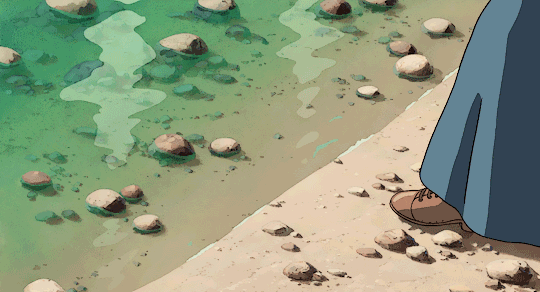Tranquility

Tranquility is the absence of negative emotions.
I think it's possible to reach that state; but often times the best we can do is try to dull negative emotion. And when I say dull, I don't mean fight it or pretend like it isn't there; I mean, recognize it and use our rational mind to weaken its sting. Then, let it flow through us so it may eventually exit our mind. Perhaps even embrace the feeling.
A common technique for countering anxiety when giving a presentation is to envision that anxiety as energy and excitement. I've given a lot of presentations, but I don't remember actually making use of that advice. Still, I try to live in the moment; I keep speaking, I keep moving forward, rather than concerning myself with how I made a mistake or how people will think about what I'm going to say next.
The other day, me and another girl were called out about something by sensei. Well, it was moreso the other girl. But as we had some similarities, I had an instinctual desire to speak up first; to put the spotlight on myself, so that she could be freed from it. I try to speak with a strong voice, and I feel confident, but my body doesn't seem to care. My voice shakes a little, and I probably sound like I'm about to cry. I can't choose that emotion. It's frustrating, but maybe if I keep speaking I'll overcome it. I'm better than I used to be, so I can take a certain pleasure in that truth when looking back at the situation.
Let me go back to this concept of using our rational mind. A stoic line of thought is that, in order to live a happy and tranquil life, we must live virtuously. In this case, to live virtuously is to do that which we are good at. This could mean partaking in hobbies we are skilled with, but it can also be less personal and moreso applied to what we can do as humans. We have the ability to reason, and so Zeno says we were designed to be reasonable. Therefore, we should use our rational mind to gain tranquility. We can introspect, we can search for the root of our anxiety--and perhaps dismantle it.
Sometimes we can just reframe our way of thinking and relieve the burden, but it's not always that easy. I quite like the concept of wabi-sabi:
In traditional Japanese aesthetics, wabi-sabi is a world view centered on the acceptance of transience and imperfection.
Beautiful sakura trees will become bare, but the blossoms will come again. Life is short, but we can appreciate the memories of those gone; and, if given eternity, things would surely grow dull. As for imperfection, wabi-sabi shows us the charm of cracked and uneven pottery. Within that, we see a greater sense of personality in each work. We see the beauty in the cracks; the evidence of mistakes, of struggles, of humanity. It's far more interesting than a perfectly smooth, pure white, factory-made cup.
I love reading stories about both the best and worst of human nature. And when I see someone like me, through the honesty of their flaws, I'm drawn in. I find it beautiful.
"This world is not beautiful, therefore it is."
-- Keiichi Sigsawa
